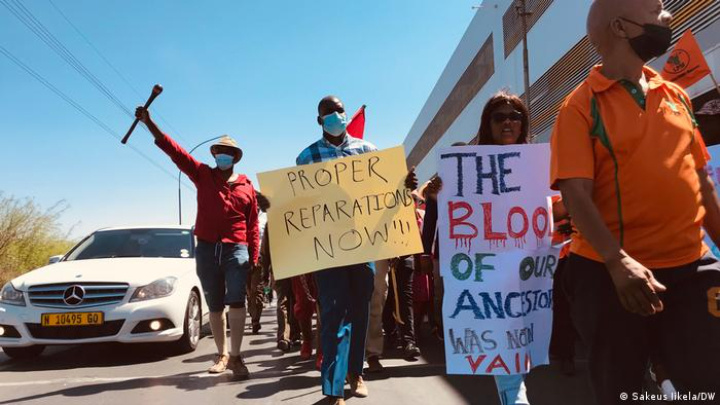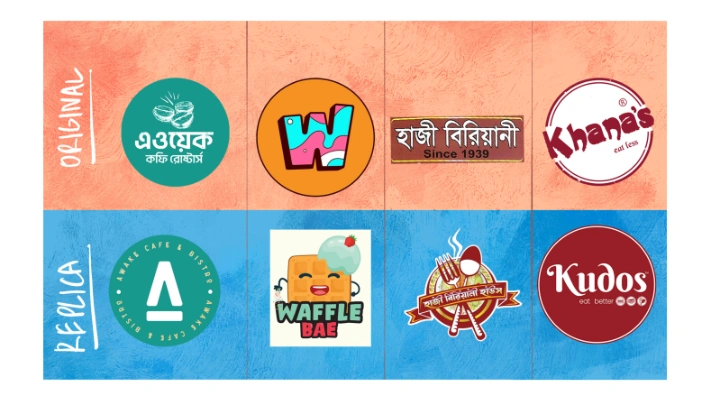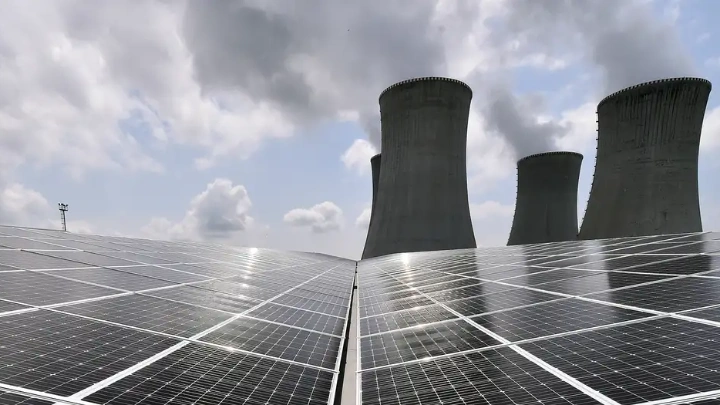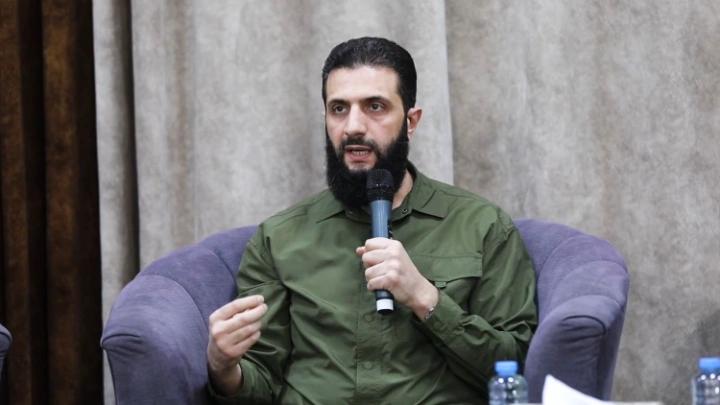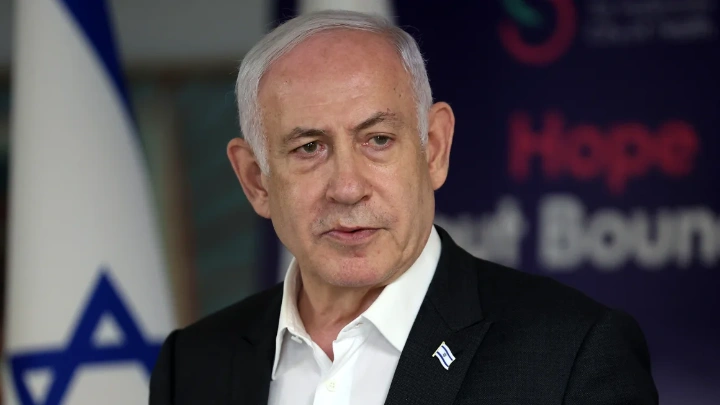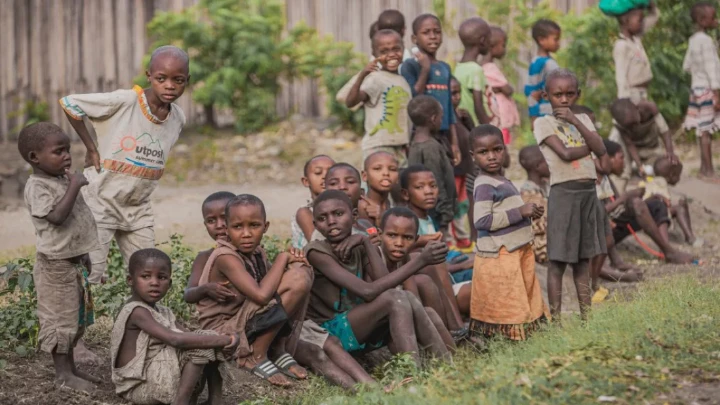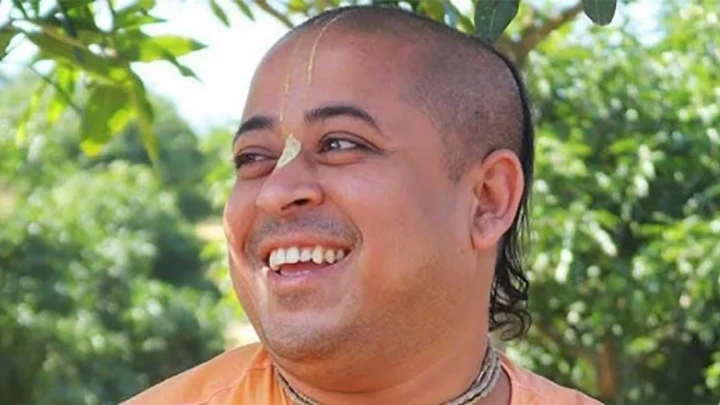Namibian opposition is demanding the renegotiation of a controversial genocide deal with Germany
Shining BD Desk || Shining BD
The Namibian opposition is demanding the renegotiation of a controversial genocide deal with Germany. But Berlin's reticence has led to even more resentment in Namibia.
"For a long time, we thought the Greens were our friends," said Nandiuasora Mazeingo, chairperson of the Ovaherero Genocide Foundation (OGF), shrugging his shoulders at news from Germany that the Berlin government sees no need to renegotiate the Joint Declaration with Namibia.
The deal was thought to have brought an end to years of negotiations to recognize the genocide of Herero and Nama people during the German colonial period in what is now Namibia.
However, the agreement led to heated debates in the Namibian parliament in September 2021.
"It seems like this issue in Germany is only about gaining political power," Mazeingo said in an interview with DW. "But we will outlast these governments because we are on the right side of history!"
Still, the leader of the official opposition in Namibia, McHenry Venaani, has hope in the environmentalist Green Party, part of the Germany's governing coalition with the center-left Social Democrats (SPD) and the neoliberal Free Democrats (FDP) .
The president of the country's largest opposition party, Popular Democratic Movement (PDM), has written an open letter to German Foreign Minister Annalena Baerbock, a member of the Greens, which DW has obtained. In it, he called for the agreement to be "renegotiated" and "restructured."
"Frau Baerbock had shown credibility while she was a candidate," Venaani told DW. "Now we have to see if she brings the same understanding as a minister."
Botswana and South Africa should join negotiations
Venaani is particularly concerned about the diaspora communities.
"There are descendants of genocide victims living in Botswana and South Africa — and they are left to fend for themselves," he said.
He wants their representatives to be included in the renegotiation process, but told DW that the German government could perhaps begin talks with the government of Botswana.
McHenry Venaani has called for the agreement to be 'renegotiated' and 'restructured'
Venaani's statements have been met with mixed feelings in Namibia. OGF chairperson Mazeingo rejected the politician's call for more government participation.
While agreeing with the demand to include the Herero and Nama in the diaspora, he criticized a possible participation of more governments as a "perpetuation of the exclusion."
He refered to the fact that the Ovaherero Traditional Authority (OTA) and the Nama Traditional Leaders Association (NTLA) — which see themselves as the official representatives of the diaspora communities — were not part of the negotiations between Germany and Namibia.
However, Ileni Henguva, a traditional councillor for the Ovambanderu, said that the affected communities had actually been considered in the original negotiations with the German government, therefore he sees no need for further talks.
The German Ministry of Foreign Affairs did not want to comment on the demands when contacted by DW. As a matter of principal, Berlin does not respond to open letters, a spokesperson told DW.
"We respect the difficult decision making process and the discussions within the Namibian society and politics," the spokesperson said.
Demonstrators call attention to the genocide in Windhoek, Namibia in May 2021
'We will shame them'
The ministry also referred to discussions about the implementation of the joint declaration that took place in March 2022 between Namibian and German delegations in Windhoek.
Ultimately, renegotiating how the terms of the deal would be implemented seemed like a possibility, though this might not appease the critics in Namibia, where the OTA is demanding a completely fresh start to talks.
"We are not going to sign a sham agreement that makes Germany look good on the international stage," OTA representative Mazeingo emphasized to DW.
Herero people were driven off their lands by German settlers, and when captured were sent to concentration camps
Wording in dispute
He demanded an admission of guilt by the German government. In the eyes of the OTA, the biggest stumbling block lies within the wording of the Joint Declaration, which calls the atrocities committed between 1904-1908 a genocide "from today's perspective."
Opposition leader McHenry Venaani also wants a clear, legal recognition of the genocide. In his open letter to Baerbock, he wrote that the atrocities "cannot only be recognised in a moral and political sense."
In his interview with DW, he referenced reparations again, describing the aid deal — worth €1.1 billion ($1.34 billion) to be paid out over 30 years under the Joint Declaration — as an insult.
"It's not about extracting the largest possible sum. We are only asking for a package that will sustainably improve the socio-economic conditions of the affected communities," Venaani said.
The PDM party leader argued that even the Namibian government has come to understand that the people of Namibia are not ready to accept this agreement.
This also applies to a possible apology by the German government. A "half-baked apology" would only lead to boos in the Namibian parliament, he said. OGF chairperson Mazeingo shared these sentiments.
"We are going to organize protests. We would make sure that whoever comes here to offer an apology is shamed, shamed to know that it is the biggest mistake that they have done to come to the people whom they have brutalized and to come here and pretend to offer an apology that is not genuine, " he told DW.
MODERN-DAY SLAVERY

Illegal workforce
Despite the fact that slavery is prohibited worldwide, modern forms of the sinister practice persist. More than 40 million people still toil in debt bondage in Asia, forced labor in the Gulf states, or as child workers in agriculture in Africa or Latin America.
Sold, threatened, exploited
Human trafficking is big business, according to the UN Office on Drugs and Crime. Sectors such as construction or mining exploit almost exclusively men, while victims of forced prostitution and exploitation in private households tend to be women. But something they all have in common: they are coerced into working through threats, the use of violence, or fraud. Most cases go unreported.
When children are enslaved
Because of poverty parents may sell their children as labor. That's often the case in Lake Volta, Ghana, where children are forced to work for fishermen. Parents are told their children will get to do an apprenticeship. But in reality, they're kept as slaves in appalling conditions. According to the International Labour Organization (ILO) there are around 10 million child slaves worldwide.
Child brides
One in five girls is wed before she turns 18, according to the UN Children's Fund UNICEF. Not all of these marriages are forced arrangements. But every year millions of underage girls are forced into marriage before the age of 15. In many cases they're taken out of school and essentially live as unpaid laborers in their spouse's home. Many report physical and sexual abuse in the marriage.
Locked up
All over the world, girls are exploited as house slaves — by their own family or by strangers. Poverty-stricken families may be promised that their children will get the chance to go to school. But once they're taken, these girls are locked inside the house and forced to work 12-14 hours a day. Many also suffer sexual abuse. The number of unreported cases is high — even in industrialized nations.
Millions held in debt bondage
Under this form of slavery, victims are forced to work to pay off a debt. Often the debts continue to pile up, even if the whole family toils for 10 hours a day at the brickworks, or in their owner's quarries, fields or mines. Often the debts are also inherited by children. The ILO estimates there are around 30 million people working as debt slaves, most of them in India and Pakistan.
Nowhere to turn
Illegal migrants are especially vulnerable to exploitation, regardless of where in the world they are. They often have nowhere to claim rights, usually cannot speak the local language, and don't know where they can turn for help. It's not clear how many illegal migrants work in agriculture in Europe alone. But many live in abysmal conditions as they slave away for well below the minimum wage.
Born into slavery
The descendants of African slaves in Mauritania are called "Haratin." Although slavery is officially banned in the northwestern African country, people are still inherited or sold as property there. An estimated 600,000 women, men and children in Mauritania are currently exploited as domestic workers or in the agriculture sector. That's one-fifth of the population.
Author: Helle Jeppesen, Natalie Muller
This article was originally published in German.
Shining BD

